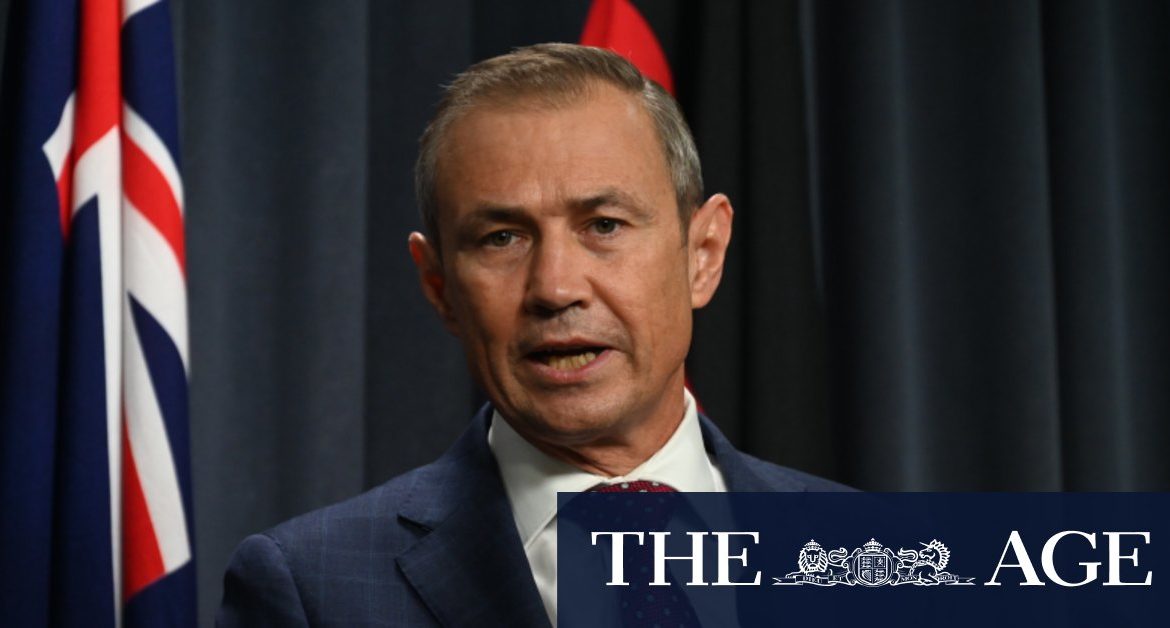The independent survey went live on January 29, less than 48 hours before lockdown was announced in Perth, Peel and the South West. There were 759 respondents, with 420 doctors completing the survey before the lockdown.
Mr Cook said because the survey was done ahead of the lockdown and just of AMA members, not the more than 6,000 doctors across the state, the survey wasn’t reflective of the health system.
“That lockdown demonstrated three really important things – our contact tracing teams were up to the game, our testing regime had the capacity to make sure that we could test everyone we needed to, and our hospital system could pivot immediately to make sure that it was ready to receive any patients that became unwell,” he said.
“Our hospital system demonstrated it is battle-hardened and it is match fit.”
While WA hasn’t had an outbreak like cities overseas, Mr Cook said the state’s strategy was to make sure that would never happen and kept the pressure off the hospital system.
“Mercifully you saw a situation where we were really successful in terms of our strategy,” he said.
Loading
“In addition to that, we procured … over 600 intensive care beds that can now be swung into action to make sure we have the resources we need in the event there is a mass outbreak. “But we won’t have a mass outbreak in Western Australia because we’ve got the measures in place to ensure that we can see where any outbreak of the disease occurs, we’ve got strong quarantine facilities to make sure we can isolate those people who are COVID positive.”
Mr Cook’s comment comes after an interim report into the case that sparked the lockdown called for an urgent review of ventilation and airflow in Perth’s quarantine hotels, highlighting that despite earlier concerns there had never been a formal assessment.
AMA WA president Andrew Miller said the same doctors who responded to the recent survey were the ones whose concerns about hotel quarantine were validated by that report released on Friday.
“I’m not surprised at all that doctors are not yet confident that we could deal with a large outbreak,” he said. “We still have a long way to go until we have got a fully rolled out vaccine program, we’re only just starting that.”
Of the survey respondents, 77 per cent said they were not sufficiently supported by the government and health department to ensure medical workforce resilience in the event of a large outbreak. About 60 per cent said they weren’t satisfied with the way the hotel quarantine is being run in the state.
Mr Miller said WA had got by because of “excellent border control and isolation” so there’s been very few people coming to the state with COVID.
“We’re not at all prepared for a community outbreak and thank goodness the security guard who did become positive in a hotel because of airborne spread was not a spreader otherwise we would have found out just how badly prepared our system on the ground is.”
Mr Miller said through a good government decision the community has been protected but where the state was lacking is in preparing the things we need to do if we do get a COVID outbreak.
“The risk of vaccination is that people will get even more confident that this problem is over well before we have enough people protected,” he said.
Mr Miller said the checklist was not telling people how to vote but listing what was important to AMA doctors that may be of importance to the broader community.
“While it’s clear the Labor Party will be returned at the State Election, it is still vital that every West Australian exercises their vote with a full comprehension of the issues they will face over the next four years,” he said.
“The cost of implementation of the COVID-19 checklist is nothing like the cost of future lockdowns or increasing hospital congestion.”
Lauren is a casual journalist at WAtoday who reports on education and general news.
Most Viewed in National
Loading







